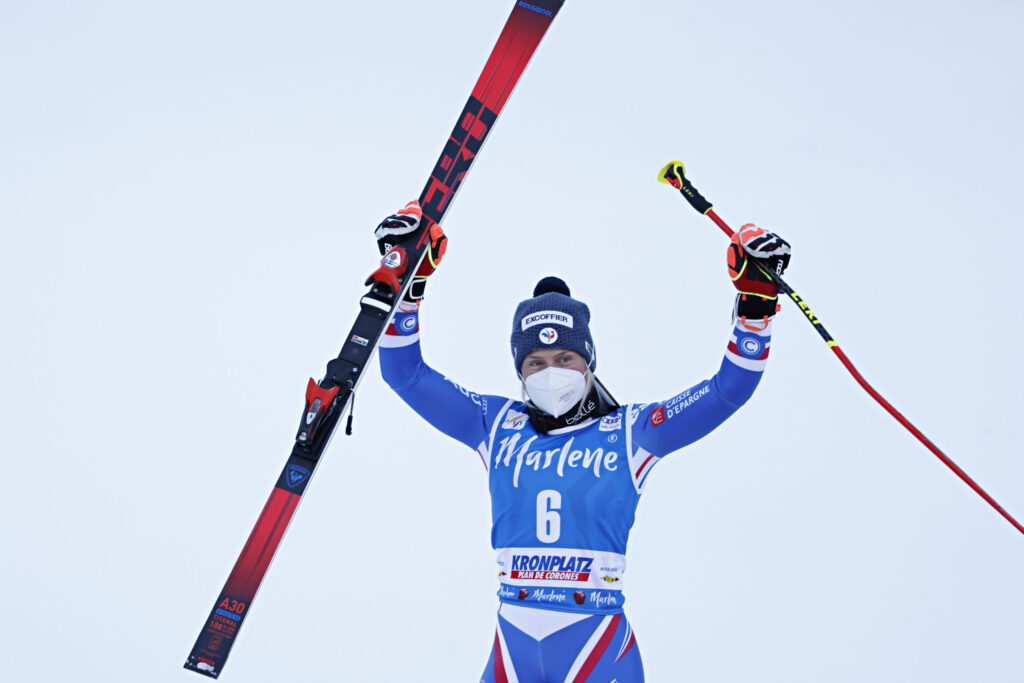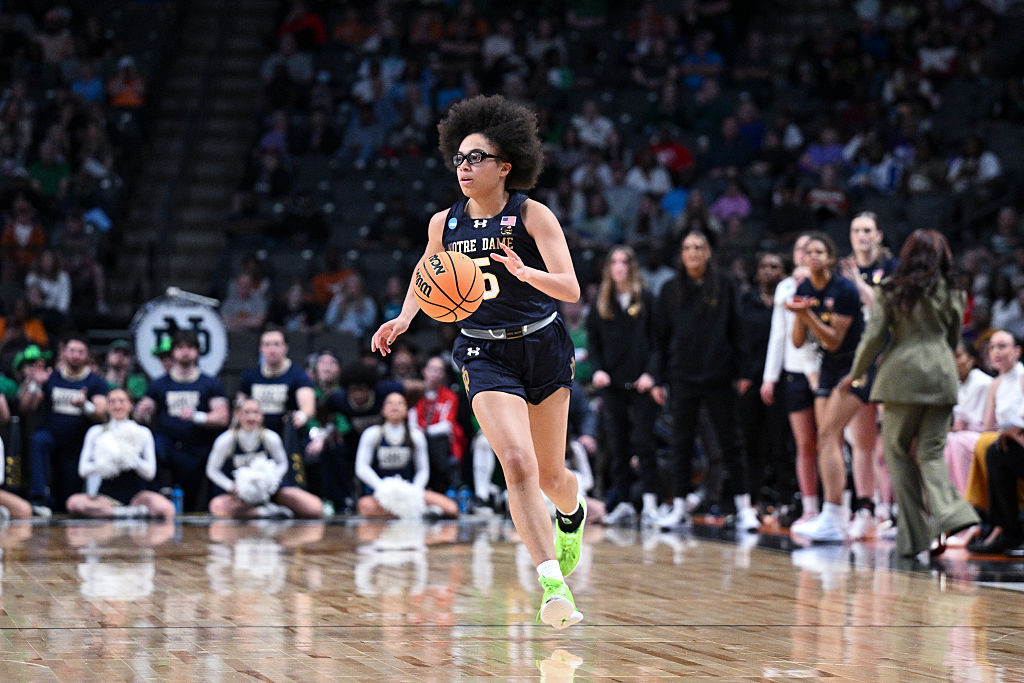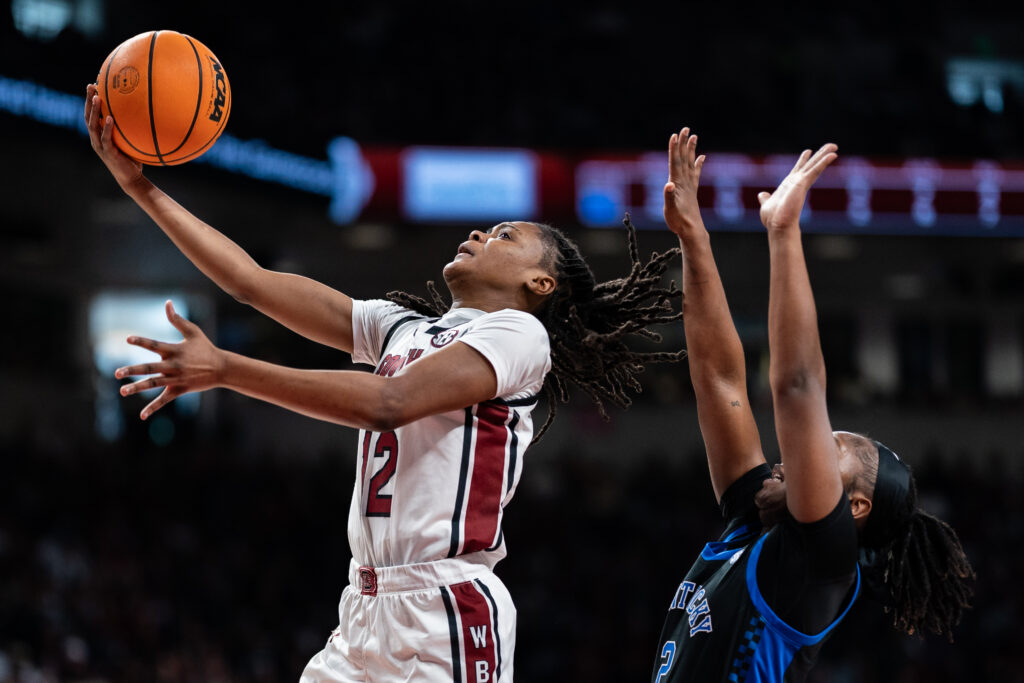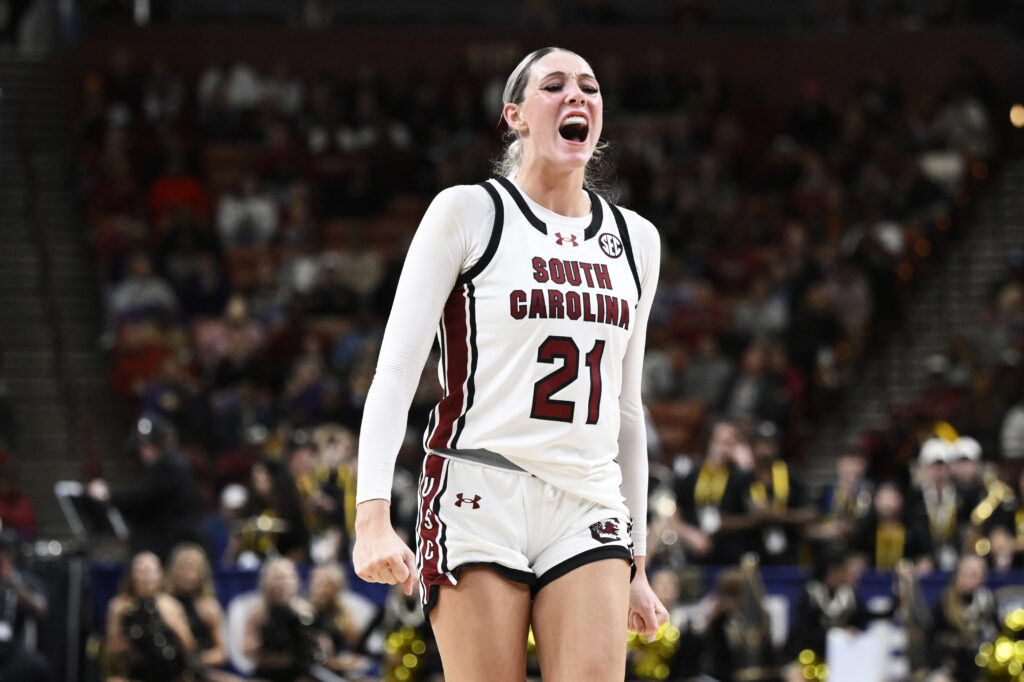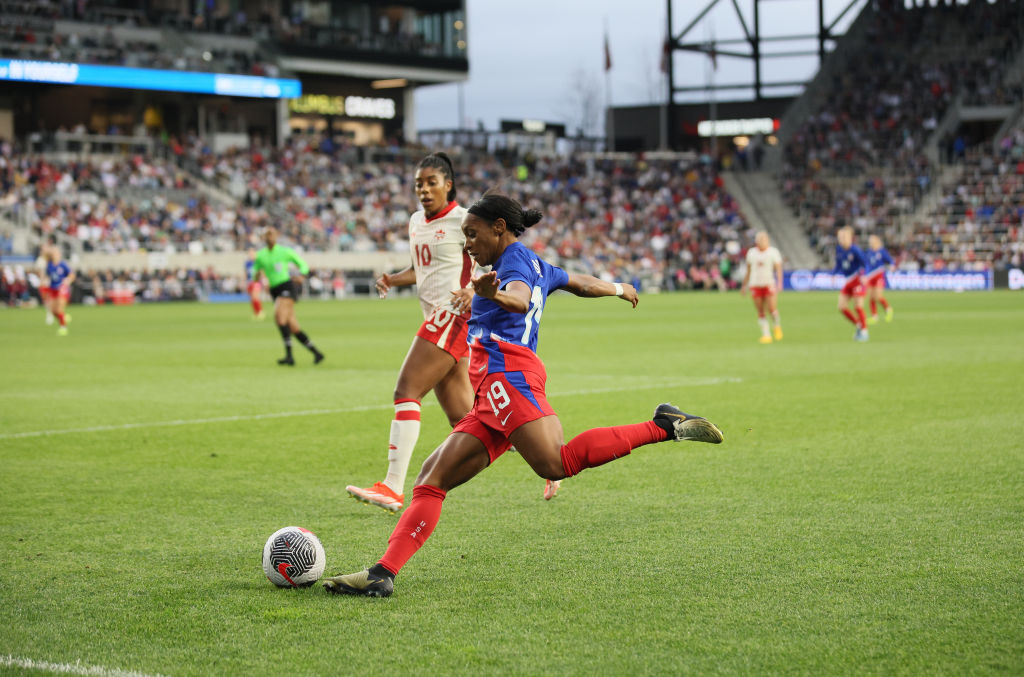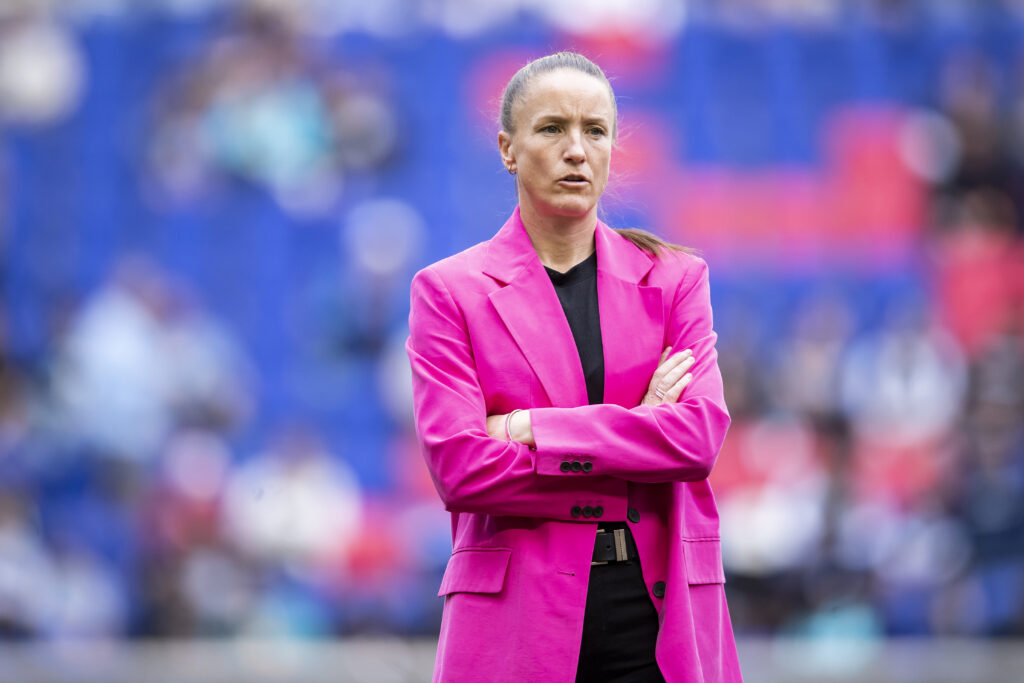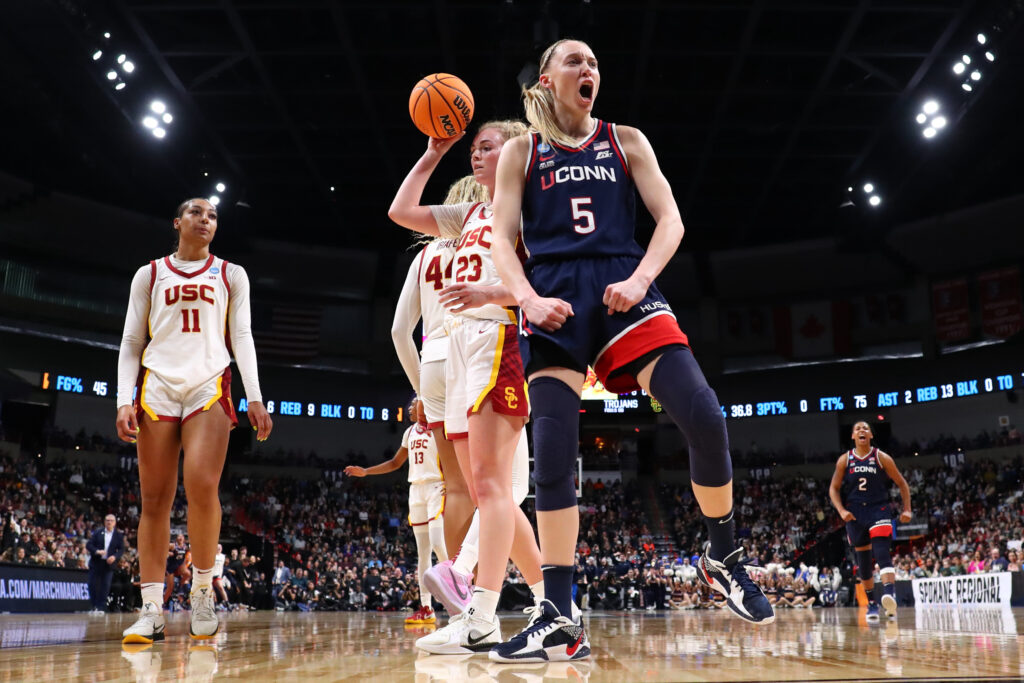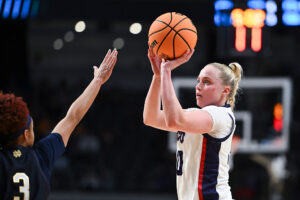Two-time Olympian Tessa Worley, France’s best hope for a medal in women’s alpine skiing, is ready for this year’s Winter Games in China despite the uncertainty that surrounds the new course in Xiaohaituo.
Normally, there is at least one event held at newly constructed alpine venues before the Olympic events officially begin. The trial runs are beneficial for both the athletes and the race organizers and officiating teams, but the ongoing COVID-19 pandemic and its associated travel restrictions precluded such a possibility. That’s why the 32-year-old champion is preparing for big races as she always does, adhering to a recipe that’s enabled her to compete at the summit of her sport and inspire others.
“I’m looking forward to being really relaxed about it, trying to be able to not be disturbed by everything new that’s going to come to us,” Worley says. “There’s a lot of stuff that’s unknown.”
For more than 15 years, Worley has carved out a career as one of the world’s elite alpine racers. A member of the French national team since 2005, she had her first elite-level giant slalom victory at age 19, when she clocked 2:12.86 at the November 2008 International Ski Federation (FIS) World Cup in Aspen, Colo.
Since then, she’s proved her mettle year after year, notably in her best event: giant slalom. Worley is a two-time GS world champion (2013, 2017), and in 2017 won the FIS World Cup GS season title, edging out American Mikaela Shiffrin (second place) and Italian Sofia Goggia (third place) for the crown. Worley has yet to add an Olympic medal to her collection, but that doesn’t take away from her greatness, according to French Olympic alpine skiing medalist and Eurosport expert Flo Masnada.
“To be on the podium where she wins every year, that’s a giant,” Masnada said of Worley. “The French often have the reputation of having good skiers, but it isn’t enough to win lap times or to go fast. What makes the difference at the highest level is the mental aspect. You must go for the extremes, you must push yourself, you must want it a little more than the others. That’s what makes the difference.”
Worley’s recipe for success, while founded on exceptional physical and technical skills, is also heavily predicated on mental outlook and resiliency.
“It’s about believing in yourself,” Worley said. “That’s not always easy, especially if you’re not as physically prepared. But when I have difficulties, it makes me hungrier to get better and try to perform. This is something that motivates me.”
Part of Worley’s motivation stems from the fact that skiing runs through her veins. Born Oct. 4, 1989 in the eastern French city of Annemasse, which hugs the Swiss border, Worley spent the bulk of her early childhood halfway around the world, first in her father’s native Australia, and then New Zealand, where her parents were ski instructors. Having been on skis since she was a toddler, Worley competed in her first race as a 5-year old at Mt. Lyford. But by the late 1990s, the family relocated back to her mother’s homeland, where Worley has since been based at Le Grand Bornand.
She credits her mixed cultural heritage and upbringing in New Zealand with helping to fine-tune her competitive spirit.
“I have this little part of me that’s Australia, that’s New Zealand, and from France, of course,” she says of the Anglo-Saxon cultural outlook toward playing sports, which is ingrained as a serious endeavor in Australian, New Zealand, American, Canadian and British societies more so than in their French counterpart. “I’ve experienced great things in sport trying to perform. I think I’m lucky to have a bit of both spirits.”
Masnada, a bronze medalist at the 1992 and 1998 Olympics, notes how important Worley’s multi-cultural background is for her career. “It is reflected in her skiing, in her mentality,” Masnada says. “She is in the moment [when she races], it’s very intense, she’s really into it. I think that’s one of the explanations.”
If Worley looks wildly intense during the race, she is actually enjoying the run, confident in her preparations and letting her skis go downhill and between the gates. In France, there can be an overwhelming pressure to obtain results, and this can take away the pleasure while negatively impacting results. Worley has learned to look beyond it.
“It’s more about enjoying yourself and not all about the results,” she says. “Sometimes you’re not able to perform at the best level because of the pressure.”
That mentality has served Worley well in the past few years, both when pushing through the COVID-19 season last year and coming back from injury. Halfway through the 2019-20 season, Worley had surgery on her right knee and missed a month of racing. She returned to the FIS circuit in mid-February 2020, notching two competitions before bad weather and the pandemic truncated the season.
But it was years earlier that a separate knee injury set Worley on a new course. A crash in December 2013 and subsequent surgery sidelined the star and prevented her from trying to convert a world championship title into an Olympic medal at Sochi in 2014. “I had a difficult time coming back after my first really big injury,” Worley says.
The physical recovery was the easier part. Worley understood that her body needed six-to-seven months to regain its elite-level functionality. The mental aspect, however, was much more difficult. It took her nearly two years to get back into peak mental form. “Once I got past this, I think I got better. I got stronger,” she says.
Indeed, three years after the big injury, she won another title, showing that it isn’t just Worley’s tenacity that sets her apart — it’s also her dedication to chasing perfection and fine-tuning the little details that give her an edge.
“I like to perfect my technical abilities,” Worley says. “I like to train and repeat and try to find the perfect line or the perfect turn around the gates. I prefer being between the gates and trying to go as fast as I can to freeskiing.”
“[Tessa] is an example in her way of preparing for races, that she leaves nothing to chance,” Masnada says. “She will push the team.”

For Olympic teammate Romane Miradoli, Worley provides a model to emulate. “She is not satisfied and is always super motivated, always chasing perfection, even if we know it doesn’t exist,” Miradoli says. “She never balks.”
After all, having a teammate who can help you better understand how to reach and sustain a career at the summit is a tremendous advantage. “It’s a real plus and a real chance,” Miradoli says.
Worley heads into the Beijing Games clocking some of her best times (and as one of Team France’s flag bearers). She won the World Cup giant slalom race in Lienz, Austria on Dec. 28 with a time of 2:03.88 over two runs. It was her first victory since last January at Kronplatz, Italy (2:11.38), and both results were Worley’s first World Cup victories since 2018. Most recently, she snagged second place at Kranjska Gora, Slovenia (2:16.75) on Jan. 8, and third place at Kronplatz on Jan. 25 with a time of 2:04.15.
Worley has also elevated her Super-G performances this year, finishing fifth and sixth in the Jan. 16 (1:11.35) and Jan. 23 (1:21.52) FIS World Cup races, respectively. The last time she topped a Super-G podium was in December 2019 at the St Moritz European Cup, with a time of 1:20.82. Yet, it’s the giant slalom that gives Worley her best chance of medaling at the 2022 Games.
“I’m at a period of my career where, if I go to the Olympics, I just really want to enjoy the moment,” Worley says. “I really want to win.”
Lindsay Sarah Krasnoff is a global sports writer and contributor at Just Women’s Sports. Historian and author of “The Making of Les Bleus: Sport in France, 1958-2010,” she lectures and teaches sports diplomacy classes and contributes to various outlets. Follow her on Twitter @Lempika7.
